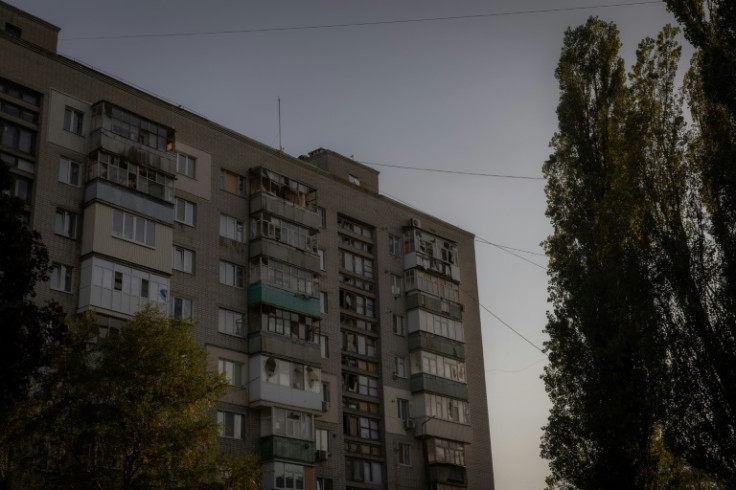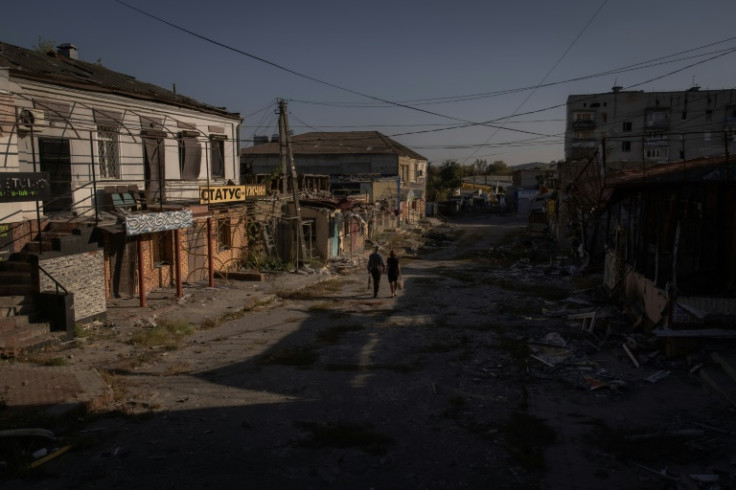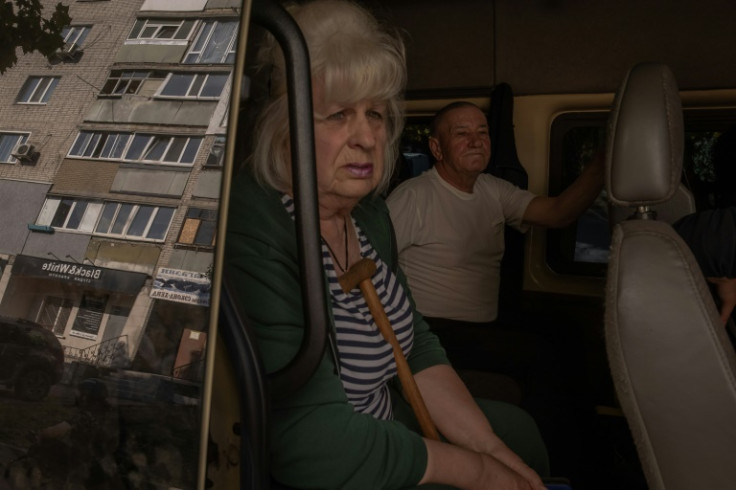Ukrainians Flee 'Ghost Town' As Russians Seek Recapture

Sergiy walked out of his grey-brick house carrying two plastic holdalls and closed the front door as his dog barked. Then the 71-year-old got into a car for evacuation.
His village of Boguslavka in eastern Ukraine looks idyllic, with geese in ponds and cows grazing, but Sergiy had finally decided to leave after heavy strikes.
This area close to the Russian border has become too dangerous for civilians as Russians attempt to retake the formerly occupied town of Kupiansk, less than 10 kilometres (six miles) from the front line.
The small, historic town in the Kharkiv region has a strategic hilltop, which Russians are battling to recapture. While they have made some advances, Ukraine says the situation is under control.
Recapturing the village would be a coup for Moscow. The villagers however, who lived under Russian occupation for over half of last year, are still surrounded by ruins.
Responding to attacks from guided aerial bombs, the Ukraine's authorities ordered the mandatory evacuation of parts of Kupiansk and nearby villages.
Although labelled mandatory, the orders are not actually enforced. But for those ready to leave however, the Red Cross is evacuating locals to the nearby larger city of Kharkiv, which itself is being shelled regularly by Russia.
Sergiy, a heating-stove specialist, declined to give his last name but he made it clear he had long resisted leaving home.
He was worried about his animals and poultry, which a neighbour will feed.
Now, at least, he will get to stay with his wife in Kharkiv and see his 18-year-old grandson, who has just started university.
But he became tearful as he talked about his smallholding.
"I want to go home so much," he said. "I don't want to live any more."
In Kupiansk, two women from the town were waiting for Sergiy in the Red Cross evacuation bus.
Tatiana, 72, a chatty woman with platinum-blond hair and bright pink lipstick, said she could not stand the artillery or the fear any longer.
"I get so scared. I'm shaking all over," she said, denouncing the Russians.
The second woman, Lyudmila, 60, smiled brightly, saying she was heading off to stay with a friend outside Kyiv.
She first fled Kupiansk during Russian occupation, staying in several cities before returning.
Now it is "pretty scary", she said, counting herself lucky that most of her flat's windows were intact.
"I always say people should leave," said Klim, commander of the Ukrainian Red Cross's rapid response unit for the Kharkiv region, who is leading the voluntary evacuation.
Russia's Grad rockets "do not differentiate. Don't just sit there, because tomorrow may be too late," said the commander, who uses a military-style call sign.
He and his partner donned bullet-proof vests to drive to Kupiansk, crossing a pontoon bridge guarded by soldiers.
In the town centre, the missiles had destroyed shops and blown out the windows in the blocks of flats.
On the open door of one ruined shop, someone had left a handwritten note.
"It's empty: everything's already been stolen."
The silence was broken by regular thuds of artillery from the other side of the river, where the Russians were positioned.
Earlier that day, the bridge had been struck and soldiers had put up a barrier to stop vehicles.
From high points in Kupiansk, smoke could clearly be seen rising from lower-lying ground on the opposite bank.
Soldiers were among the few customers in the surviving shops and a small market, where traders were packing well before the town's 6 o'clock evening curfew.
"The town is empty, a ghost town," said Marina, 54, leaning on the counter of her daughter's grocery store, where she helps out.
She got "goosebumps" even talking about the Russian occupation, she said, and was dead-set against its return.
"Here we feel free, but there we walked around like we were under some kind of whip."
But not everyone felt the same way.
Sitting watching the scene in a jumper and leggings, retired doctor Lidiya smiled as she recalled Russian occupation.
"When our Russians were here, life was wonderful," she said.
"There wasn't this looting and there was some order."
Such open expressions of support for Russia are rare, however.
Chatting with friends outside a shop, 55-year-old Volodymyr said he could not leave as his job was to keep the town's water running.
This involves pumping water from outside the town and mending holes in pipes from shelling -- a job that never quite got done, he said.
"Those left are the most steadfast," he said of Kupiansk's remaining residents.
"The ones they cannot overcome."



© Copyright AFP {{Year}}. All rights reserved.





















